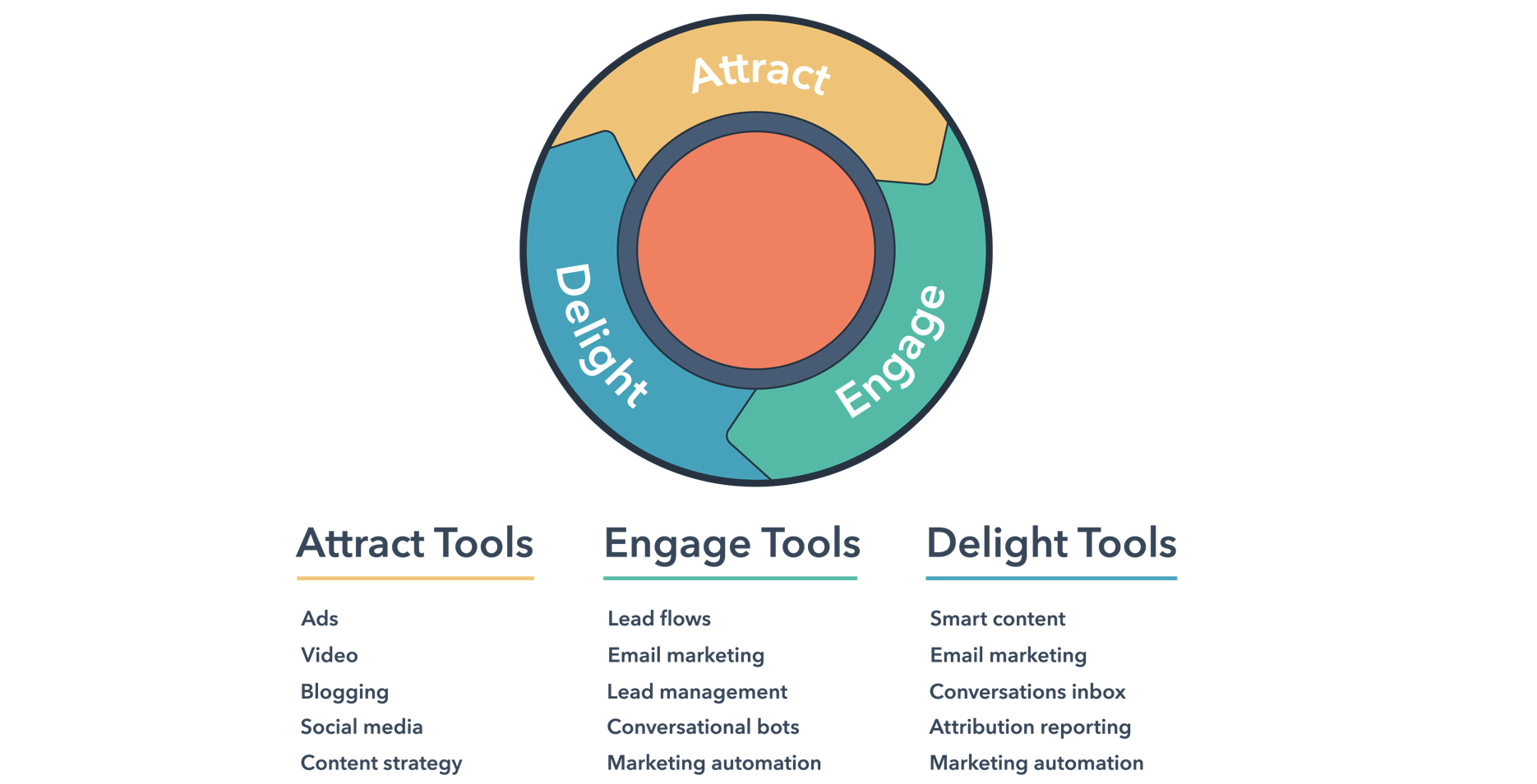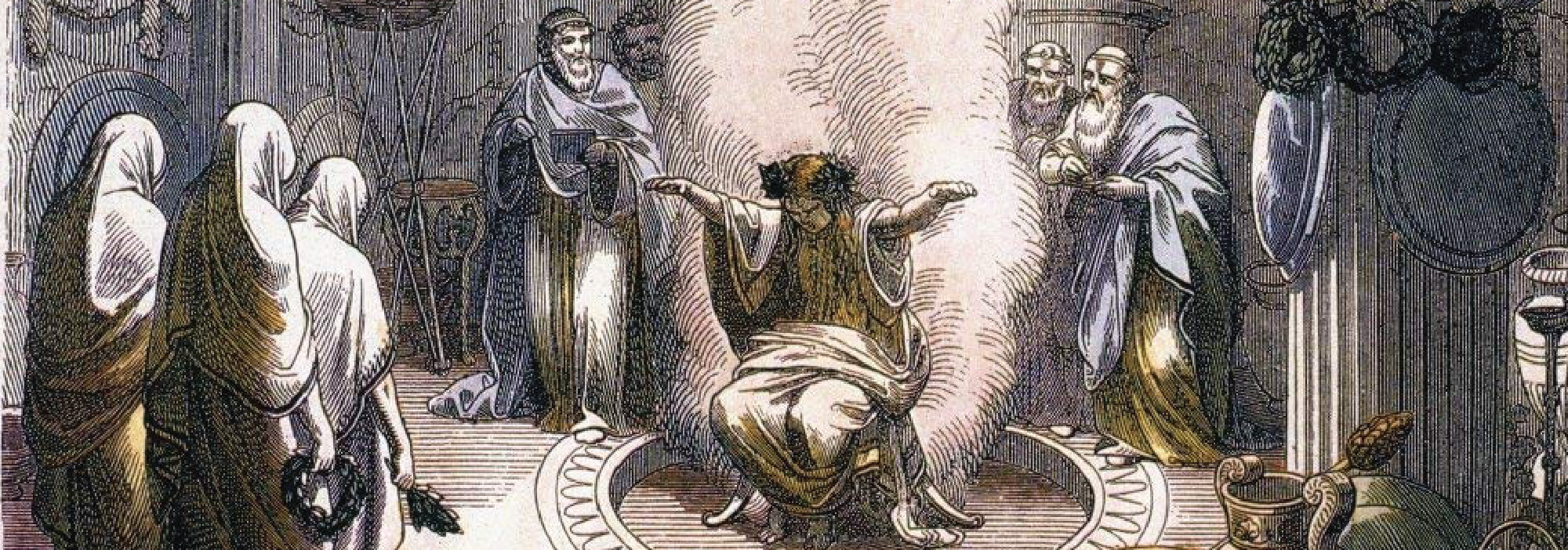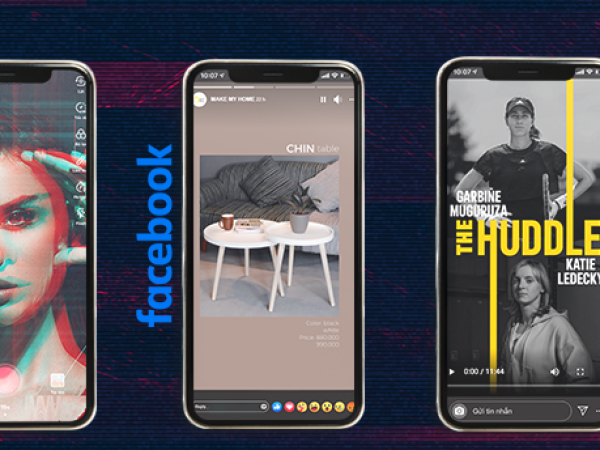The same as the advice from the Oracle of Delphi, Inbound Marketing philosophy based around helping people in order to gradually build trust and naturally attract the prospects/ strangers.
1. Oracle of Delphi – The predicted defeat of the great empire
In the spring of 480 BC, during the invasion of the Persian king and after the defeat of 300 Spartans, entire Greece was seized by panic. Under threats of a vast army that was heading their way, the leader of Greek’s force sought aid from Delphi – the ‘temple’ of the most renowned prophets of the time.
After consulting Gods, the oracle stated as below:
‘Though all else shall be taken, Zeus, the all-seeing, grants that the wooden wall only shall not fail.’
Arguments raged as to what this ‘wooden wall’ could mean with different ways of interpretation. In the end, they all agreed with the most convincing answer which finally led them to the victory: the fleet!

2. Inbound Marketing – another form of the Delphi’s oracular statements
In the era of Delphi, the role of the prophet is to provide practical guidance and advice to help the believers overcome their challenges. When it comes to modern marketing, this crucial role should fall to your brand.
Let’s imagine that each of your prospects is the Greek leader who reaches out for instant instruction. They might not know what they should do, where to start at the beginning but as a marketer, our job is to act as a constant guide whenever they need our brand as a resource of expertise answers.
Supporting regardless of circumstances and just in time is the premise of trust-building. And in inbound marketing, trust is a powerful weapon that can convert website visitors from strangers into customers, friends and ultimately, promoters for your business.
The great story forever told. After returning, the Greeks always tell how they defeat the powerful Persian force and spread the story to their descendants. In that case, Delphi will continue playing the part of a trusted advisor for a new set of Greek heroes – so do your brand.

To sum up, Inbound marketing is a strategy focusing on starting long-term relationships with customers through personalized content to provide solutions for the challenge they face, at the right channel, at the right time
3. So, What Is The Inbound Methodology?
To become the trusted counselor in the eyes of your prospects, your brand must go through 3 steps below:
- Attract: attracting prospects and customers through relevant and helpful content
- Engage: start collecting information and building trust via meetings, calls, or live chat
- Delight: establish the long-term relationship by educational and contextual contents to position you as a trusted resource for relevant problems
Therefore, channel selection and content strategy are the most essential parts of the inbound marketing approach.
In fact, when relevant questions arise, the prospects can start interacting with your brand anywhere they feel comfortable such as live chat, social messenger or call, etc. Thus, you must deeply understand the customer personas as well as their corresponding journey to tailor your multi-channel strategy that can satisfy the audiences at the right time.
Besides, to create a 1:1 conversation with thousands of prospects at the same time, content relates to the context of the audience’s current situation is very important. However, to build a contextual content strategy that can enhance the audience experience, brand needs CRM that can:
- Fully integrate every information of prospects that collected from marketing, sales or customer service activities, in one platform
- Classify the target audiences into different groups based on insight, behavior, and stage of the decision-making process to tailor the content approach strategy.
- Measure the effectiveness of the marketing activities to optimize the process
As a result, in 2019, Wisdom tapped into Hubspot and became its certified partner. By utilizing the marketing and sales toolbox of Hubspot, we believe that the conversion rate will be drastically improved during the consulting stage – the stage in which one single bad experience can make over 51% of audiences leave you forever!
In conclusion,
Although Inbound Marketing is a rising trend, it does not mean that traditional outbound activities are no longer effective. In fact, both methods have their advantages:
If Inbound Marketing is the farmer who nurtures their prospects for future harvest, Outbound Marketing is just like a hunter who tracks down his prey for a-same-day-dinner. Inbound can naturally attract the prospects and win their preferences but the entire process takes time. Outbound, though, can annoy audiences at a certain level but guarantees result in a short time!
So the question is not to do inbound or outbound but should be
- How to flexibly combine the advantages of the 2 approaches
- Which business models should be applied inbound/outbound
And if you need a little guidance on proper strategies for each growing stage of business, just do not hesitate to contact us. Maybe after a couple of hours, we will find out the new opportunity for the next collaboration
Booking consultant here!




